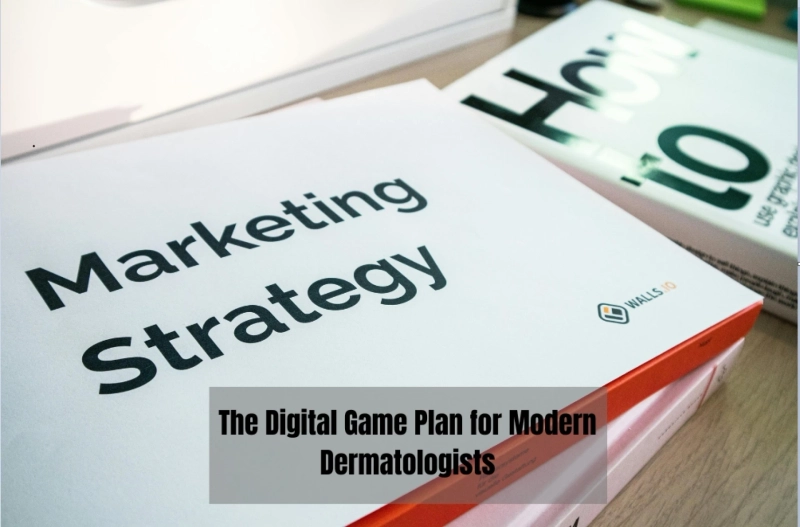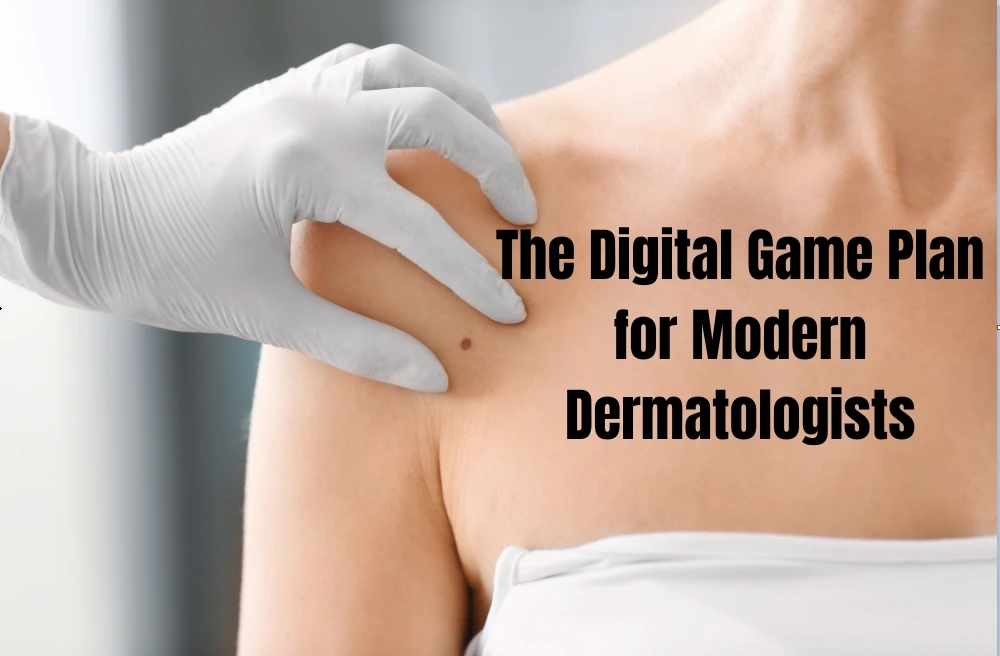Why dermatologists need a digital-first mindset
When Dr. S had me review her dermatology clinic’s digital setup last year, she had everything going for her — expertise, loyal patients, and a clean clinic space. But her online presence? Barely functional. Her site hadn’t been updated in years, booking was clunky, and she relied on walk-ins and word-of-mouth. Within three months of revamping her site and rolling out a basic dermatology marketing strategy, she saw more than double the enquiries. And they were from the right type of patients — motivated, local, and ready to book.
That experience isn’t unique. Across Australia, more and more dermatologists are recognising that visibility online isn’t optional — it’s central. Patients don’t browse the Yellow Pages anymore; they Google their concerns and vet clinics like they’re planning a holiday. If your website, search presence, or ads fall short, you’re losing to someone who’s nailed it.
Your website should do more than “exist.”
Let’s be real — most dermatology websites are either outdated or overloaded with jargon. Neither helps a patient who just wants to know: “Can you treat my skin problem, and how do I book?”
You don’t need fancy animations or award-winning design. You need:
- Clear service descriptions in plain English
- Real patient stories or testimonials
- Fast, mobile-friendly navigation
- Easy-to-find call-to-action buttons
When we updated the homepage copy for a Melbourne skin clinic, shifting it from clinical-speak to conversational FAQs, the bounce rate dropped by 38% in one month. It was the same website structure, just more accessible messaging.
But it's not just about what your site says. It's how quickly it loads, how secure it is, and whether it's easy to navigate on mobile. All of that feeds into trust, both for Google and real people.
The not-so-secret power of showing up in search
Search engine optimisation (SEO) might sound technical, but at its core, it’s about making sure people who are already looking for help can find you.
I’ve seen clinics get fixated on social media, while ignoring search terms like “rosacea treatment near me” or “dermatologist for adult acne Brisbane.” The truth? Patients use Google when they’re ready to act.
That’s where thoughtful SEO comes in — optimising page titles, using location-specific content, and creating helpful articles that answer actual questions.
If you’re starting from scratch, consider building content hubs around high-intent terms. This doesn’t have to be an academic exercise — a post like “What causes hormonal acne in your 30s?” can be both valuable and rank-worthy.
And if you're already producing content, check for opportunities to internally link to supporting topics — especially deeper guides, such as SEO for dermatologists, that explain how search visibility works in this field.
Paid ads: fast-track visibility without waste
Not everyone has months to wait for SEO results. That’s where Google Ads — and sometimes Meta ads — can bridge the gap.
But here’s the mistake I see most: dermatology clinics running a few Google Ads with broad match keywords and generic copy. Then I wonder why they’re burning $500+ a month with little return.
We changed that for a Sydney-based practice by narrowing their ad targets down to just three conditions they wanted to treat — melasma, adult acne, and sun damage. The click-through rate jumped to 5.2% and the cost-per-lead halved. Why? Because the messaging felt personal, not mass-produced.
If you’re venturing into PPC, read up on local compliance and budget-friendly best practices. There’s excellent guidance on running Google Ads for dermatologists that won’t get you flagged for breaching health advertising rules.
Pro tip? Track every call, form fill, and appointment back to the keyword that triggered it. That’s how you learn what works — and stop wasting budget on what doesn’t.
Content builds trust (and Google loves it too)
When you’re scrolling through a clinic’s site late at night, what makes you trust them? It’s probably not their qualifications — it's the way they explain things, the questions they anticipate, and how comfortable they make you feel.
- Answer the awkward or ‘taboo’ skin questions no one wants to ask
- Share recovery timelines and what to expect after treatments
- Offer myth-busting clarity in a world flooded with skincare misinformation
One clinic I worked with started a “Real Skin Journeys” series. Just short write-ups of patient stories (with consent), photos, and honest notes on how long results took. It wasn’t polished, but it was powerful.
You can even add paid content to the mix down the track. To level up your strategy, look at what others are doing with dermatology ppc campaigns and how those campaigns guide readers toward decision points like free consults or newsletter signups.
Retention matters just as much as acquisition
A final note: new patients might get you excited, but returning patients keep your practice steady.
Retention in dermatology is different from other fields. Patients don’t always need monthly visits, but they do want seasonal check-ins, skincare updates, and trustworthy advice when conditions flare.
Some easy wins we’ve seen work:
- Automated follow-up emails post-treatment with skincare tips
- Birthday promotions (free LED boost, SPF samples)
- Educational newsletters that feel more like friendly skin advice than marketing
A Canberra clinic added a post-checkup survey and discovered that 70% of patients wanted more education on how to maintain results at home. That insight helped shape their content calendar and create packages that led to longer-term bookings.
Bring it all together (without burning out)
Digital marketing for dermatologists can feel overwhelming, and it’s not your job to be a digital expert on top of being a medical professional.
But here's the thing: you don’t need to master every tool or trend. You just need a system.
- Refresh your homepage headline
- Write one blog post answering a common patient question
- Audit your Google Ads account and pause anything irrelevant
Little by little, these add up. You’ll go from being invisible online to being the trusted local skin clinic patients recommend.
And if you ever feel stuck, remind yourself — even the best skin transformation starts with a first appointment.




